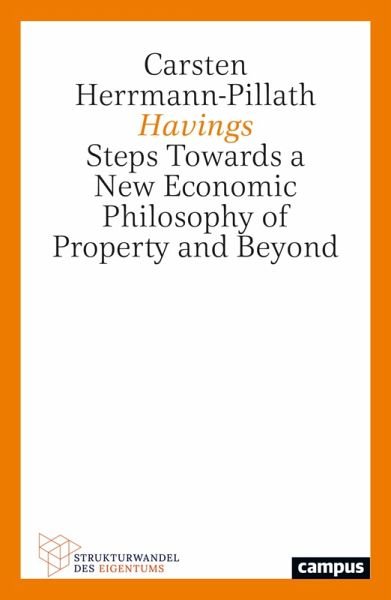
Havings (eBook, PDF)
Steps Towards a New Economic Philosophy of Property and Beyond
Versandkostenfrei!
Sofort per Download lieferbar
0,00 €
inkl. MwSt.
Weitere Ausgaben:

PAYBACK Punkte
0 °P sammeln!
Exploring the economic, sociological, and philosophical implications of property, this book aims to overcome the conceptual and ideological limitations inherited from 19th-century debates and legal developments. It introduces a new conceptual framework that substitutes the term »property« with the terms »having« and the neologism »havings«, analyzed through two dimensions: the action modes of having (appropriation, recognition, and assignment) and the structural modes of havings (possession, ownership, and property). After presenting two case studies, the final chapter outlines a new eco...
Exploring the economic, sociological, and philosophical implications of property, this book aims to overcome the conceptual and ideological limitations inherited from 19th-century debates and legal developments. It introduces a new conceptual framework that substitutes the term »property« with the terms »having« and the neologism »havings«, analyzed through two dimensions: the action modes of having (appropriation, recognition, and assignment) and the structural modes of havings (possession, ownership, and property). After presenting two case studies, the final chapter outlines a new economic system that moves beyond the polarity of capitalism and socialism, grounded in the multidimensionality of having. The study addresses a wider audience in economics, social sciences, philosophy, and jurisprudence. Open Access eBook available creativecommons.org/licenses/by-nc-sa/4.0/legalcode
Dieser Download kann aus rechtlichen Gründen nur mit Rechnungsadresse in A, B, BG, CY, CZ, D, DK, EW, E, FIN, F, GR, HR, H, IRL, I, LT, L, LR, M, NL, PL, P, R, S, SLO, SK ausgeliefert werden.













